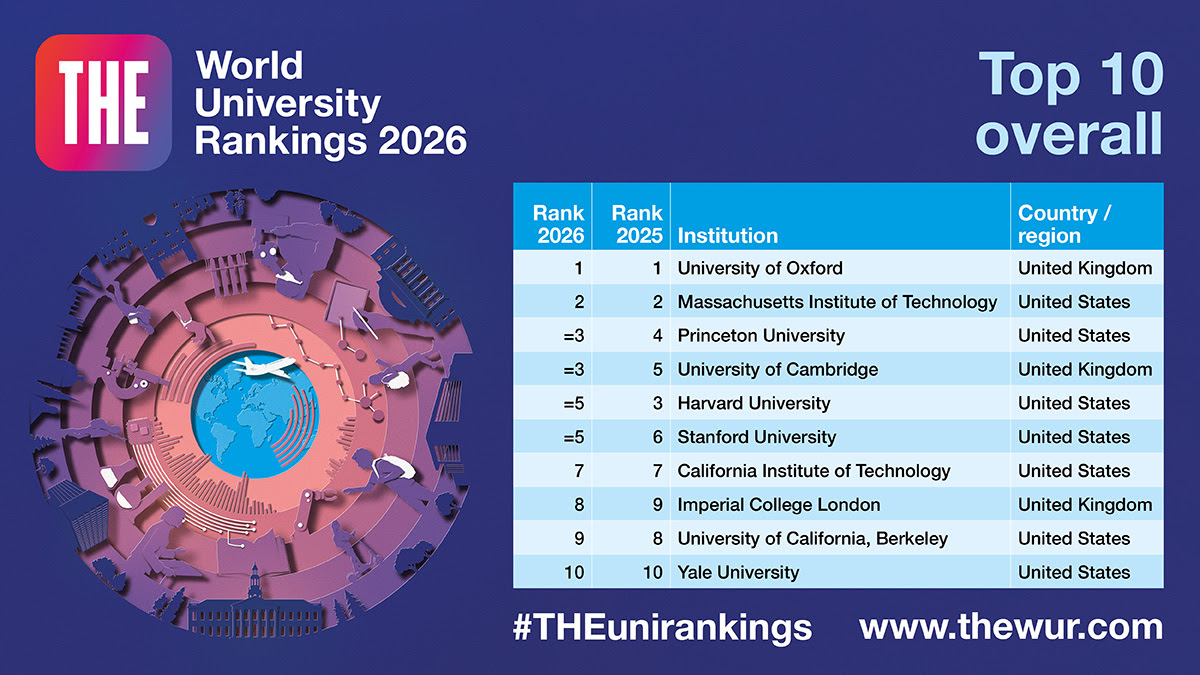It has been another season of world University ranking but in none of which any Nigerian university made the first 500. The ranking industry is confronting considerable criticisms because it hides as much as it reveals. However, it is, for now, the rave for students, parents and recruiters, meaning that taking first from behind as has been Nigeria’s lot is another manifestation of the country’s decline.
In the past few ranking exercises this year (2025), South Africa and Egypt had universities in that category. Apart from the University of Cape Town and the University of the Witwatersrand in Johannesburg which made the first 300 in most cases, the University of Johannesburg and that of Pretoria narrowly missed that category in one of the recent rankings. The University of Cairo in Egypt which boasts of over 200, 000 student population as well as the University of Stellenbosch in South Africa were in the 400 – 500 category in that particular ranking. That puts them in the same category as globally well-known names such as Temple University (US); Konstanz University in Germany; University of Essex in the UK, Carleton University in Ottawa; University of Bath which has now entered the league of the top 10 in the UK and so on.
So, Nigeria and Nigerians cannot find any reasons why Nigerian universities should not be competitive enough. It is worse that this doesn’t embarrass the government of the day.
It should since Nigeria is not boycotting similar global processes. It should because high government officials talk glibly about Nigeria hoping to be part of the top 20 economies in the world. By what magic can an African economy accomplish that without a national university system that can produce graduates who can think on their feet? Thinking on one’s feet is different from accomplishing excellence by chance.
There is no debate about it that some of the criteria in the methodology package do not favour universities in Africa but that cannot be an excuse if Nigeria is the only other powerhouses on the continent (the others being Egypt and South Africa) which is shooting below expectations.
Above all, the university sector is where Nigeria ought to have comparative advantage on the continent because Nigerian universities had, collectively, demonstrated a culture of being a head ahead of the others before the era of SAP. Even now, Nigeria’s stock of academics can power world class performance but not before a rejig. The rot has demoralised if not destroyed the stars in the system.
It looks like Nigeria is confronting this embarrassment to its image only because the power elite, in all their different fractions and factions, has reached a consensus that Nigeria does not need a functional university system. And that the way to keep the universities dysfunctional is to continue to refuse to shield it from Nigeria’s albatross of ‘anything goes’.
Universities are not conventional institutions. There is a logic to the university idea. If a power elite has, for whatever reasons, decided that the nation doesn’t need universities, there is nothing that even a million ASUU strike actions would achieve in substantive terms.
It is no longer clear if Claude Ake’s argument that we cannot have heady universities in the absence of an investor class is still applicable, what with the rise in the service sector and the larger context of informationalised capitalism. Perhaps, Ake’s argument is something to revisit, with particular reference to its validity in the face of unspeakable infiltration of academia by people who simply do not have the curiosity to even be messengers in that system but who, today, are the ones in charge. It contrasts with what used to be the case: only those who got 3rd class or pass degree used to be available for employment in the banks, NNPC, FIR and so on because the universities will not release most of those who obtained First Class or 2.1 Today, the reverse is the case.
Unfortunately, ASUU cannot enforce quality within the academic component of the system because that will crash it. Yet, the university system cannot heal itself on this, including the new and mostly privately owned universities. So, who bells the cat?
This is a very complicated cat, stretching from paucity of funding, collapse in moral and ethical standards, crisis of university governance, collapse of quality in staffing, antiquated curriculum and a national university system with no overarching geopolitical orientation because the federal elephant operates always at the bequest of one global regime of truth or another. Estranged of federal power from its root results in a chasm between every administration and academia, putting academia in comprehensive disarray. It is the price Nigeria pays by the absence of its universities from the first 500 club unlike the other giants on the continent, a club Morocco is forcing open to enter if it has not entered and even thrown out one member.
Who might have done this to Nigeria?




























